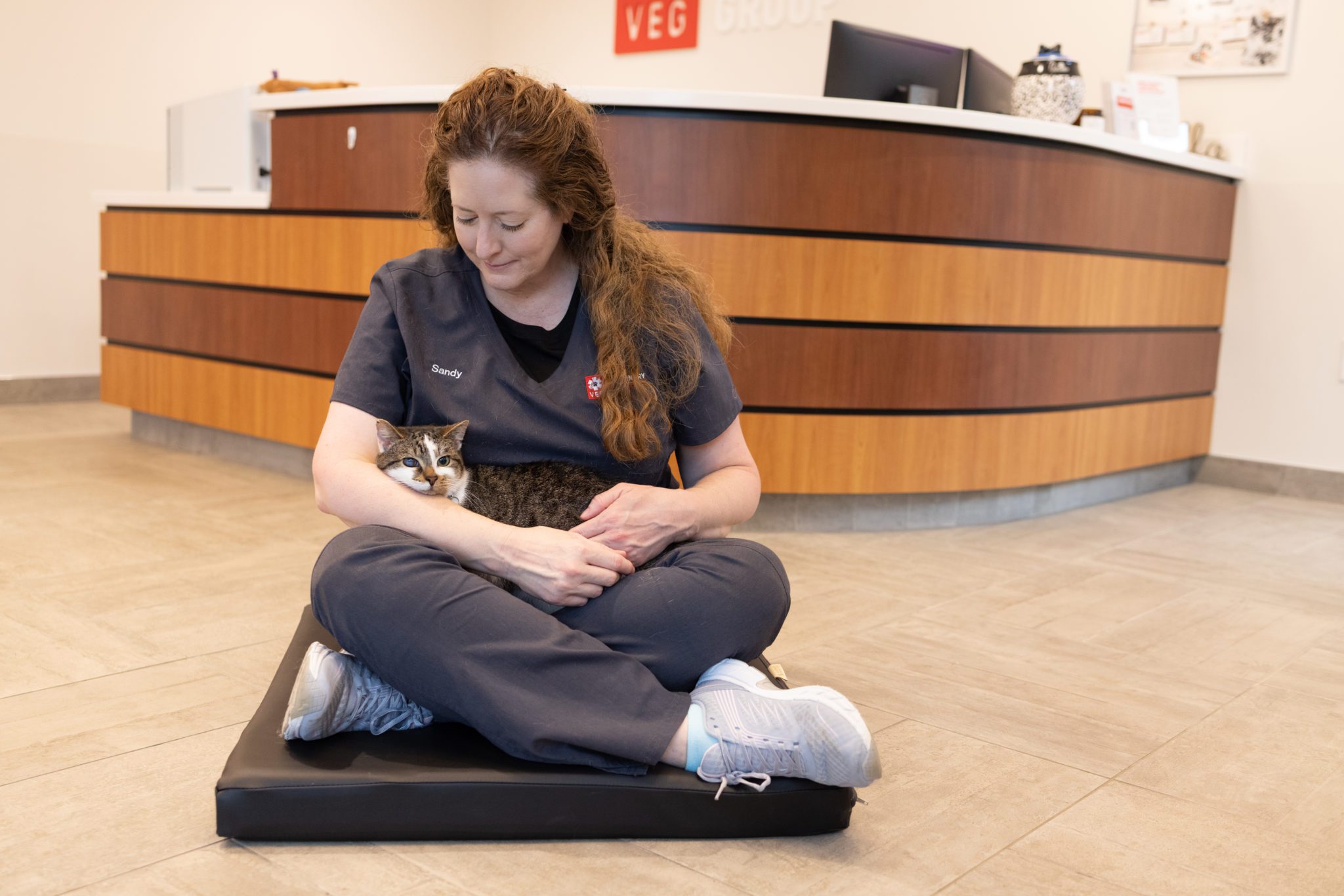
6 Signs of Fever in Cats
Dr. Keith Mihansky
Call & Speak with a doctor Open 24/7, Even Holidays!
Walk in today for:
Emergencies
Point-of-Care Ultrasound
Urgent Care
X-Rays
Diagnostics + Testing
End-of-Life Care
Surgery
Treatment + Hospitalization
Are you worried that your cat may have a fever? Do you know how to recognize signs of fever in cats? As a cat owner, it’s important to learn the symptoms of feline fevers so you can more easily tell when your cat may be sick.
Common Signs of Fever in Cats
In the article below, we’ll walk you through some of the most common symptoms of fever in cats. This information will help you to determine when your cat may need to be evaluated by your primary care veterinarian or an emergency vet. Read on to find out more.
6 signs of fever in cats include:
Lethargy
Lethargy is a common symptom of fever in cats, just like it is in humans with fevers. Cats who are sick and have a fever often do not feel like getting up and being active. They may show less interest in normal everyday activities and may just want to sleep instead.
Lethargy is also a symptom of almost every other illness in cats. Therefore, you cannot assume your cat has a fever just because they’re lethargic. You should, however, have them evaluated by a veterinarian to determine the underlying cause of this symptom if they experience lethargy that is persistent or progressive.
Hiding
Hiding is a common sign of illness in cats, particularly if your cat does not typically exhibit this behavior. Often cats will hide as a method of hiding their illness from those around them. They will also often hide due to stress. Although hiding can be a sign of many other illnesses, it may be an indication that your cat has a fever.
If you are able to coax your cat out from their hiding place and they are otherwise acting normally then you should monitor for recurrence or other signs of illness. If you are unable to coax them out from their hiding place and they are persistently hiding, then they should be evaluated by a veterinarian to help determine the cause as this may be due to illness.
Loss of Appetite and Thirst
Cats who are sick with any illness may be less interested in food and water than usual. If your cat has suddenly stopped eating and is not drinking much water, this is typically an indication that something is wrong.
Fever is not the only potential cause for these symptoms; however, loss of appetite is a common consequence of having a fever. Cats with a fever are simply not feeling well enough to eat. However, the loss of interest in water is more concerning, as this can quickly lead to dehydration, which can be fatal in severe situations, particularly when not treated promptly.
Shivering
Shivering is another possible sign of fever in cats. Cats generally do not shiver for many other reasons besides fever. If your cat is shivering, especially with any of the other symptoms on this list, there’s a good chance they have a fever.
Although you may be tempted to warm your cat up when they are shivering, we would rather advise on seeking veterinary attention. You may risk overheating your cat and causing more harm. Offer them a blanket, but do not cover them up or use a heater near them.
Rapid Breathing
Another common symptom of fever in cats is rapid breathing. Rapid breathing can be a sign of many different problems in cats. Cats may breathe rapidly due to pain, respiratory disease, cardiac disease leading to fluid accumulation, pleural space disease, hyperthermia (high body temperature) and to compensate for certain blood gas abnormalities. Rapid breathing may also occur secondary to a fever.
You may hear your cat wheezing or breathing with a labored breathing pattern. In some instances, however, you may only notice this symptom if you watch your cat’s chest moving while they breathe. Rapid breathing is a medical emergency and should be evaluated by a veterinarian as soon as possible.
Loss of Grooming Habits
Although this may seem like an insignificant symptom, some cats may cut down on their grooming habits when they have a fever. This is likely because they don’t feel well and may also be attributable to stress.
If you notice your cat’s grooming habits changing suddenly, especially along with any other symptoms on this list, then they may be experiencing a fever. Consider having them evaluated by your veterinarian to further investigate the cause for this change.
Contact a Vet or Emergency Vet for Signs of Fever in Cats
If you notice any of these symptoms alone, they could mean nothing—or they could be indicative of a variety of other health problems. However, a combination of the symptoms on this list can help you recognize a fever in your pet. Pay close attention to changes in your cat’s body language, hygiene, and habits to find out more.
If you suspect your cat may have a fever, take them to their primary care veterinarian as soon as possible. If your primary care veterinarian is not able to see you within a couple of days, you may need to think about going to the emergency hospital instead.
Contact VEG if you notice any of the signs of a fever in cats mentioned above. We have locations all over the country, which are all open 24/7, including holidays. When you call VEG, you’ll talk with an emergency veterinarian who will help guide you in the best direction and offer advice on what to do next for your pet.

